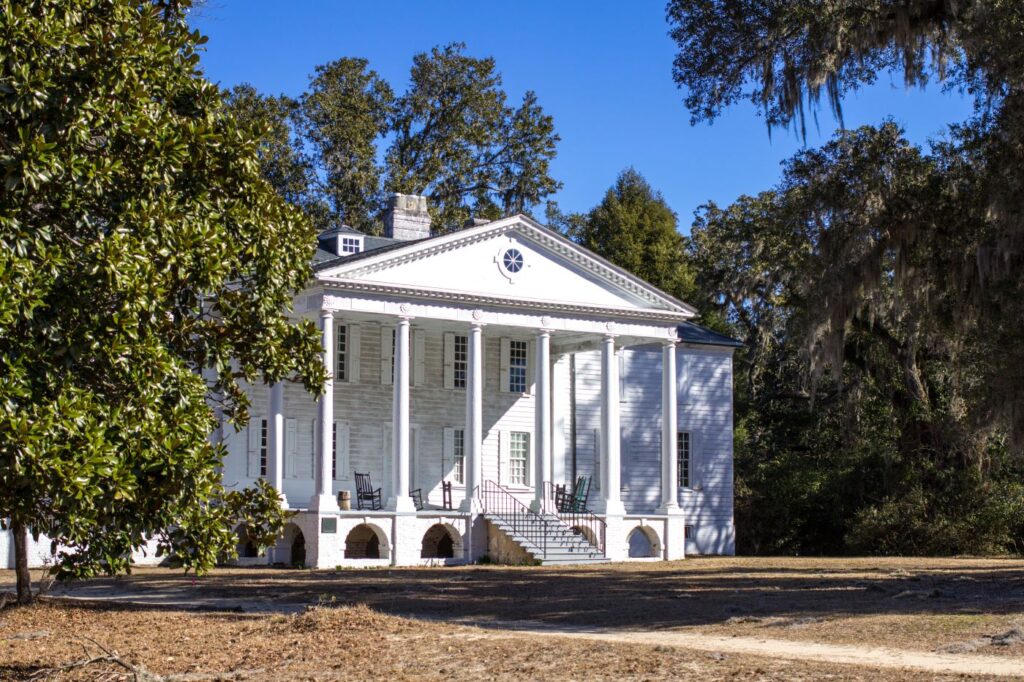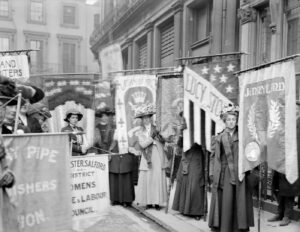David Hackett Fischer’s Albion’s Seed: Four British Folkways in America is an admirable study of American culture, blending history and social science. In a way reminiscent of Alexis de Tocqueville’s Democracy in America, the book explores the causes of Americans’ history and institutions in their “usages, manners, customs, mores, and morals,” or “folkways.” Fischer traces the origins of American culture to four British subcultures from which America’s colonists came: the East Anglian Puritans who settled New England; the royalists of southern England who settled the coastal South, starting in Virginia; the North Midland Quakers who settled the Delaware Valley; and the Scots-Irish who settled Appalachia. Fischer analyzes each culture through a framework of twenty-four folkways (such as speech, marriage, food, and sports).
He also shares an important trait with Tocqueville that makes his work especially praiseworthy today: unlike the pioneering American sociologist William Graham Sumner (who coined the term “folkway”) or Marxist historians, Fischer is not a materialist. He believes that a folkway “is not primarily biological or instinctual in its origins” (or the consequence of one’s class, race, or sexual identity, as contemporary Marxists might say), “but social and intellectual.” For Fischer, in the words of Alexander Hamilton, “reflection and choice” drive human history more than “accident and force.”
Yet Fischer also appreciates how the past and environment condition choices and ideas. With this comprehensive method, he is able to paint a picture of American life that can address lingering wounds that still plague our public discourse today, thirty-five years after he wrote.
The power of Fischer’s approach is especially on display in his treatment of the coastal South. On one hand, this culture produced some of the most famous of the Founding Fathers; on the other hand, it produced the “peculiar institution” of race slavery that some call America’s original sin. Fischer helps us understand how one can reject this culture’s—and by extension, America’s—faults, while still recognizing what good it did achieve.
The Virginia Cavaliers
Start your day with Public Discourse
Sign up and get our daily essays sent straight to your inbox.The story of the coastal South, Fischer says—that is, of the aristocratic culture of George Washington, Thomas Jefferson, and James Madison—did not begin in 1607 with the settlement at Jamestown, or in 1619, as the New York Times suggests, with the arrival of the first enslaved Africans in Virginia. It began in 1642, when Sir William Berkeley became Virginia’s governor.
Over thirty-five years, with a high-handed “cavalier” spirit that he brought from southern England, Berkeley built up Virginia from “a sickly settlement of barely 8,000 souls” to a true colony of 40,000 people, with “a coherent social order, a functioning economic system, and a strong sense of its own special folkways.” These were the customs of London and the parts to its south and west—the old Saxon domain of King Alfred, or “Wessex”—that Thomas Hardy later memorialized in his novels.
Wessex was strongly royalist and Anglican. It overwhelmingly supported King Charles I against the Puritans in the English Civil War. It was “the first to proclaim Charles II king in 1660 even before the Restoration in England.” It usually supported whoever the reigning monarch was during times of rebellion, back to King John in 1215.
Just as Puritans fled to New England in the 1630s when royalists dominated England, so when the Puritans triumphed in the English Civil War a few decades later, the royalist migration to Virginia sped up, with Berkeley’s encouragement. During that time the ancestors of Washington, Jefferson, Madison, and Robert E. Lee, among others, all arrived in Virginia. There they tried to recreate the world they had left behind.
Hegemonic Liberty
That world was intensely hierarchical. The king was on top and servants were at the bottom (and the aristocratic immigrants brought plenty of servants in tow). The intellectual hero of this culture was not John Locke, the defender of universal human rights, but his opponent, Robert Filmer, the defender of patriarchy.
Men inherited unequal stations in this hierarchical culture, but each strongly valued the liberty to which his station entitled him. He exercised as much freedom as possible over those beneath him, demanding honor from them just as he honored those above him. Moreover, he strove to deserve his station, since in an aristocracy, virtue, more than wealth, is (at least in theory) the justification of hierarchy.
In this system of “hegemonic liberty,” as Fischer calls it, to be free was to rule—both others and oneself. This culture combined strong desires—for freedom and honor—with an ethic of self-dominion. The striving to be master over one’s own domain and person at its worst produced sexual predators like William Byrd II. At its best it produced strong, charismatic leaders like George Washington, defenders of limited government, and, paradoxically, some of the fiercest defenders of personal freedom in the colonies.
The strangeness of the last point was much discussed back in England at the time of the American Revolution. “‘How is it,’ Dr. Samuel Johnson asked, ‘that we hear the loudest yelps for liberty among the drivers of [slaves]?’” Edmund Burke, speaking to Parliament, noted that the “spirit of liberty” in the “southern colonies” was “still more high and haughty than in those to the northward.” He concluded that free southerners, daily witnessing the “misery” of slaves’ “abject toil,” had become more “jealous” of the freedom they had.
Thus the same culture that was fiercely loyal to the Stuart kings helped lead the colonies’ War of Independence. When Parliament under the Georgian kings began to take away southerners’ accustomed liberties, they shed their loyalty to the monarchy and eventually became Jeffersonian Republicans, retaining their principles of “individual independence” and elitism. (Their political shift exactly mirrored that of their aristocratic cousins back in England, who became Whigs in the eighteenth century.)
The Cultural Roots of Race Slavery
Fischer argues that this strange combination, of a strongly hierarchical culture with a love for freedom, did not result solely from the importation of African slaves; it arose much earlier, in the medieval Anglo-Saxon culture of southwest England.
The inhabitants of Wessex practiced slavery extensively during the early Middle Ages; they also practiced serfdom more than any other region of England. Slavery and serfdom died out eventually, but they instilled in the population a strong custom of deference to those over them in the social hierarchy, which lasted even into the late twentieth century.
The American South also inherited from Wessex the tradition of discouraging public education. Southern English aristocrats knew that universal schooling would weaken their advantage over those they ruled. They especially feared that commoners might read and ponder the Gospel’s message that Christ came to break down the distinction between slave and free. As Duke William Cavendish said to King Charles II, “The Bible in English under every weaver and chambermaid’s arm hath done us much hurt.” The same elitist tradition of education came to Virginia, where not just African slaves but also the mass of poor whites were kept illiterate.
Social hierarchies existed among the Puritans of New England as well, but not nearly as visibly. Most New Englanders came from East Anglia’s large middle class, which had disproportionately borne the burden of taxation (because nobles were largely exempt, and peasants had little to give). Not wanting to inflict on others the injustices they had suffered, in America the Puritans fostered a society without sharp distinctions of aristocracy or peasantry. Virginians, by contrast, “extended the full array of English social orders, and reinforced them.”
This culture—the accumulated habits of a people, built up over centuries by countless choices, sometimes free, sometimes forced on certain individuals by others—best explains why slavery took root in the South.
But one deliberate choice of Lord Berkeley was especially momentous. Although the first slaves came to the colonies through Virginia—before Berkeley arrived—for many years the Old Dominion (a moniker reflecting Virginia’s royalist roots) had fewer slaves than either New England or New Netherlands (today New York). Berkeley, however, consciously started to expand slavery in the late 1660s, because “Virginia’s ruling elite . . . required an underclass that would remain firmly fixed in its condition of subordination. The culture of the English countryside could not be reproduced in the New World without this rural proletariat.”
The calculated nature of this decision, to introduce and promote chattel slavery, further explains why southern slavery was so sinister—worse than anything England had ever known, as everyone at the time realized. To assuage their consciences, and to justify themselves to their critics, Virginians resorted, among other things, to euphemisms: “Slaves were referred to as ‘my people,’ ‘my hands,’ ‘my workers,’ almost anything but ‘my slaves.’”
Fischer’s work serves as a warning to us not to become enslaved to the bad choices of the past by caving to historical determinism.
The Sin of Slavery and the Virtue of Self-Government
Fischer confirms what critics of antebellum Southern culture have often said: its practice of slavery was uniquely pernicious in history, more even than the medieval and early modern hierarchical culture from which it derived.
But Fischer has resources to criticize that culture far more strongly than Marxists and other materialists can. They reduce all human evils to intrinsic properties of certain classes, races, or residents of a particular region: some people cannot help but be bad, in other words. Fischer, recognizing the full measure of human freedom, can see the true depth of slavery’s evil: although it was conditioned by a past, it was not the necessary consequence of that past; it was a willful choice—a sin—of the powerful to use the weak for their own comfort.
One cannot even excuse slavery, Fischer says, as the result of “an economic imperative,” which classical Marxism might suggest:
A system of plantation agriculture resting upon slave labor was not the only road to riches for Virginia’s royalist elite. With a little imagination, one may discern a road not taken in southern history. In purely material terms, Virginia might have flourished as did her northern neighbors, solely by complex speculations in land and trade, and by an expansive system of freehold farming.
At the same time, Fischer’s view of history from the perspective of freedom, while it allows him to critique the bad aspects of aristocratic southern culture, also lets him recognize other, good aspects. In Marxism’s deterministic perspective, everything is linked to everything else in one chain of necessity, hence achievements become completely vitiated by historical association with evil. But if men are free, then no deed of theirs entails any other with logical necessity; one can therefore acknowledge in good conscience the merits of southern culture without in any way endorsing its faults.
One such merit was the South’s capacity to produce inspiring, talented leaders, like Washington and others. “The popular images of these men,” Fischer says, “are not historical myths. The more one learns of them, the greater one’s respect becomes. Their character was the product of a cultural idea,” an important part of which was the value of self-dominion through personal virtue, and of self-government through active engagement in public life. That idea did not depend on slavery. It was able to survive without it and produce, for instance, two of the greatest American generals of World War II: George Marshall (born in Pennsylvania to families strongly conscious of their Virginia roots) and Douglas MacArthur. They defeated fascism on the battlefield and held back Soviet communist expansion in the decades that followed, helping, in some measure, to atone for the sins of their slave-owning ancestors.
Liberation from Historical Determinism
The people of the early South were not perfect, but that does not mean one cannot appreciate the goodness of many (if not all) things to which they devoted themselves. As Frederick Douglass recognized, the fact that Founders like Washington and Jefferson owned slaves does not refute the truths that they endorsed in the Declaration of Independence. Sin clouds one’s judgment, but not completely; conscience never dies.
Jefferson at least was able to admit his own hypocrisy, and even to diagnose the evil of slavery and predict its dire consequences for the United States:
[W]ith what execrations should the statesman be loaded, who permitting one half the citizens . . . to trample on the rights of the other, transforms [the former] into despots, and [the latter] into enemies? . . . And can the liberties of a nation be thought secure when we have removed their only firm basis, a conviction in the minds of the people that these liberties are of the gift of God? That they are not to be violated but with his wrath? Indeed I tremble for my country when I reflect that God is just: that his justice cannot sleep forever.
Fischer’s work serves as a warning to us not to become enslaved to the bad choices of the past by caving to historical determinism. We can be free of the sins of slavery and racism without throwing away the good with which they have come into contact, like the principles of freedom and justice on which America was founded. That liberation will take forgiveness, conversion, and, as Fischer says, “a little imagination,” taking as our guide the eternal truths that outlive the messy twists and turns of human history.
Image by ehrlif and licensed via Adobe Stock.











